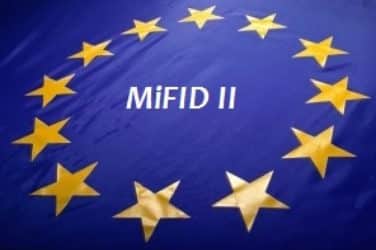TABB Group Says MiFID II Compliance Relies on Ability to Source and Utilize Accurate Data
06.22.2016TABB – NEW YORK & LONDON – June 22, 2016 – In every aspect of a trade, from initiation and client facilitation to final settlement, the need to accumulate, assimilate and evaluate data will be multi-dimensional, cross-asset and cross-regional under the purview of the Markets in Financial Instruments Directive II (MiFID II). Trading and execution venues, the members who use them and the authorities responsible for monitoring them will be required to provide and use data to deliver a more transparent, robust and efficient market. TABB Group research, “MiFID II: The Data Conundrum,” reviews the required wholesale change to policies and procedures as well as greater harmonization of standards that will result as the impact of MiFID II on the industry and its relationship with data.
“Buy-side or sell-side, large or small, confidence in meeting MiFID II will hinge on access to reliable and accurate data,” says Anthony Perrotta, report co-author and head of research and consulting at TABB. “The most important questions now are what data to collect and when, where, why and how to use it. The answers to these questions are paramount in gaining an edge in both compliance and competitive analysis moving forward.”
As TABB details, the trading environment is now more complex, global and multi-asset, and the eco-structure of the market is changing overall. With the management of liquidity formation shifting to the buy-side, as well as across asset classes, a new approach to the use of data in the delivery of best execution is necessary. In an environment of declining access to traditional information flows, the ability to interact seamlessly between automated and voice trading to access liquidity will be vital. Further, access to accurate and timely data will be what ensures successful implementation of best execution policies as the buy-side battles market forces. TABB also reveals that though the provision of best execution has centered around the use of transaction cost analysis (TCA) historically, changes in this process are underway.
“In order to establish what information needs to be measured to deliver best execution and to create valuable intelligence, firms are focusing beyond standard TCA offerings,” said Perrotta. “Of the firms surveyed by TABB, 47 percent are dissatisfied with their current TCA offerings and nearly 80 percent are now looking at analytics above and beyond TCA.”
TABB concludes that effectively procuring access to and leveraging reliable, accurate and timely data, whether through expanded TCA or additional services, will be the backbone to answering the MiFID II data conundrum and ensuring proper best execution.
The 19-page, 13-exhibit report is now available for download by TABB’s Research Alliance fixed income clients and pre-qualified media at https://research.tabbgroup.com/search/grid.




